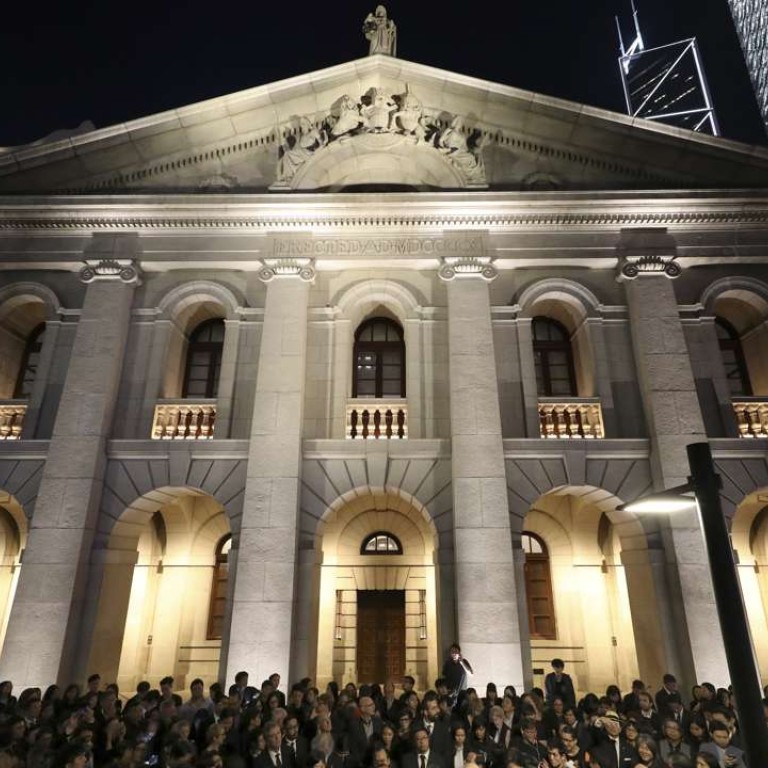
Common sense and cool heads needed from all sides in the Legco oaths controversy
Allow the judges to apply the law: we do not want our courts to become political battlegrounds
Beijing’s interpretation of the Basic Law this week laid down clear principles on the legality of oaths taken by lawmakers and other officials. But that is not the end of the story. Those principles must now be applied in Hong Kong and any questions arising will ultimately be settled by the courts.
The events which led to the interpretation were triggered by insensitive and insulting comments by two pro-independence lawmakers when taking their oaths. Their fate will be decided by the courts in a case brought before Beijing’s ruling. However, the interpretation has prompted two further cases. One, brought by a taxi driver, targets eight democrat legislators facing disqualification because of alleged defects in their oaths. The other, filed by a retired civil servant, seeks the removal of Chief Executive Leung Chun-ying and three pro-establishment Legco members on similar grounds. Everyone is entitled to bring a legal action. But there are rules about who has the right to proceed with a judicial review. Judges will, no doubt, consider applications carefully before deciding whether they have merit. There is a danger this whole painful affair will now escalate further. Common sense must prevail. It is time for all sides to exercise restraint and allow the judges to apply the law. We do not want our courts to become political battlegrounds.
Meanwhile, Wang Zhenmin, legal department head of Beijing’s liaison office, has told a forum 15 lawmakers “messed up” their oaths, while former central government official Chen Zuoer identified eight types of insincere oaths by legislators. Such comments are intended to reinforce principles laid down in the interpretation and to warn Hong Kong lawmakers to behave in future. Oaths are to be taken sincerely and must then be adhered to. Beijing has made it clear that pro-independence advocacy in Legco will not be tolerated. Lawmakers would do well to heed the warning and to refrain from such actions.
But this should not be taken as a signal that the central government’s intention is to bar numerous legislators whose oaths have already been accepted.
Public sentiment would quickly shift and sympathy for radicals grow if up to 15 democrat lawmakers, representing many thousands of voters, were to be disqualified. Such a move would backfire, perpetuating a vicious cycle of action and reaction which is already preventing our city from getting back to business.
This is a time for cool heads to prevail and for the courts to be allowed to decide the precise legal impact of the interpretation. We need matters to be resolved, not inflamed.

